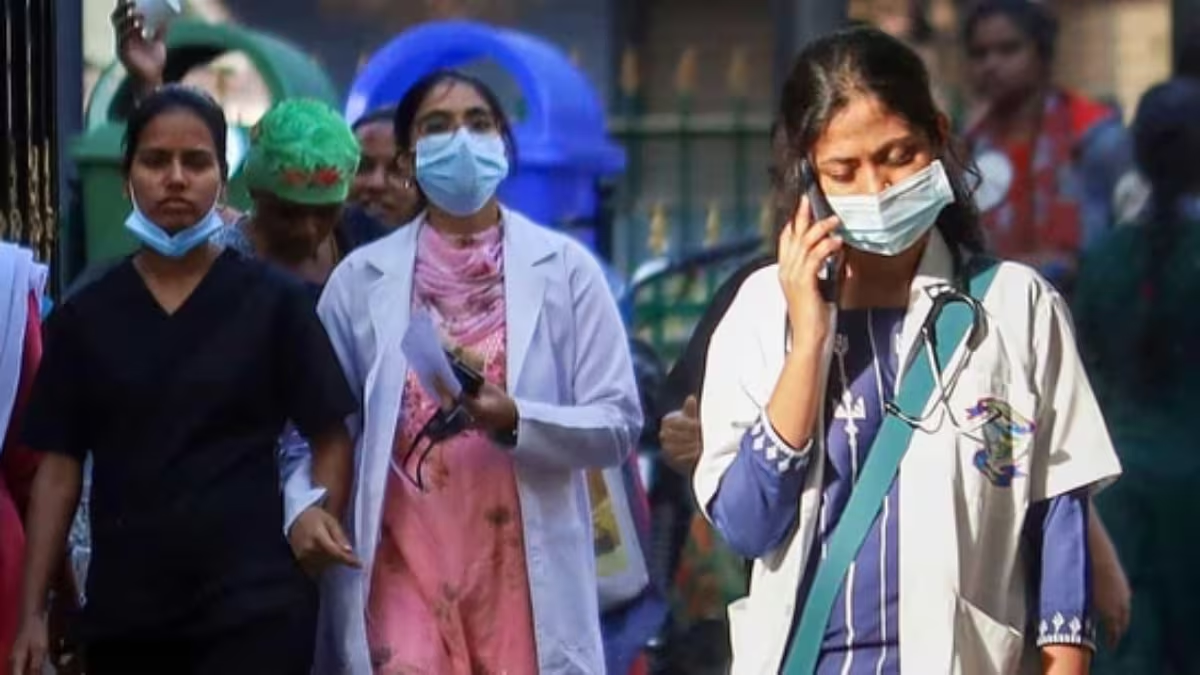
Delhi is currently grappling with a severe outbreak of H1N1 swine flu, with a significant surge in cases reported over the past 24 hours. Health authorities have raised concerns as hospitals witness an overwhelming influx of patients exhibiting flu-like symptoms. Reports indicate that over 50% of households in the national capital have at least one member showing signs of infection, such as high fever and sore throat. Given the alarming situation, medical experts are urging the public to take preventive measures to curb the spread of the virus.
Table of Content:-
How Does Swine Flu Spread?
H1N1, commonly known as swine flu, is an influenza virus that spreads primarily through respiratory droplets when an infected person coughs or sneezes. It can also be contracted by touching contaminated surfaces and then touching the face, particularly the eyes, nose, or mouth.
Doctors emphasise that Delhi's poor air quality has significantly worsened respiratory illnesses, making individuals more susceptible to seasonal infections like swine flu. Additionally, the transition from winter to summer has created favorable conditions for viral infections to thrive.

Certain groups are particularly vulnerable to severe complications from the virus, including:
- Individuals over the age of 50
- Young children
- Those with pre-existing health conditions such as hypertension, diabetes, asthma, COPD, and heart disease
A survey conducted by LocalCircles, covering Delhi and its neighboring cities like Gurugram, Noida, Faridabad, and Ghaziabad, revealed a sharp rise in hospital admissions for pneumonia and bronchitis linked to severe H1N1 infections.
Also Read: Viral Surge In Delhi-NCR: Over Half Of Households Affected, Survey Reveals
Symptoms and Complications of H1N1 Swine Flu
Swine flu symptoms closely resemble those of other seasonal influenza viruses and include high fever, sore throat, cough, runny or stuffy nose, body aches, fatigue, and chills. However, doctors have noted a worrying trend—symptoms that previously lasted between five to seven days are now persisting for at least ten days.
Some patients are experiencing additional complications such as breathlessness, severe chest congestion, wheezing, and gastrointestinal issues like nausea and diarrhea. The prolonged nature of the illness suggests that new viral strains may be in circulation, increasing the severity of infections and hospitalisations.

How to Prevent Swine Flu?
As Delhi battles this outbreak, following stringent hygiene and precautionary measures can help reduce the risk of infection. Here are some essential steps to protect yourself and others:
Maintain Good Respiratory Hygiene
- Cover your nose and mouth with a tissue or your elbow when sneezing or coughing.
- Dispose of used tissues immediately to prevent contamination.
Also Read: Nipah Virus Alert: Kerala Strengthens Precautions As Bat Breeding Season Approaches
Frequent Handwashing
- Wash hands multiple times a day with soap and water for at least 20 seconds.
- Use alcohol-based hand sanitisers when soap and water are not available.
Avoid Touching Your Face
The virus can enter the body through the eyes, nose, and mouth, making it crucial to keep hands away from the face.

Stay Away from Sick Individual
Avoid close contact with people showing flu-like symptoms.
If you experience symptoms, self-isolate to prevent spreading the virus to others.
Stay Home If You Are Sick
Resting at home and limiting social interactions can help with a quicker recovery while preventing further transmission.
Do Not Share Personal Items
Avoid sharing cups, plates, straws, and utensils to minimise the risk of spreading the virus.
Wear a Mask in Public Places
A well-fitted mask can provide protection, especially in crowded areas or when visiting hospitals and clinics.
When to Seek Medical Help?
While mild cases of swine flu can be managed at home with rest and fluids, immediate medical attention is necessary if you experience:
- Difficulty breathing or shortness of breath
- Persistent chest pain
- Sudden dizziness or confusion
- Severe vomiting
- Symptoms that improve but then return with worsening fever and cough
Bottomline
Delhi's worsening H1N1 swine flu outbreak is a stark reminder of the importance of public health measures in preventing viral infections. As hospitals report increasing cases and prolonged symptoms, prioritising personal hygiene, vaccination, and early medical intervention can help control the spread. By staying vigilant and adhering to preventive measures, Delhi residents can navigate this crisis and reduce the risk of further escalation.
Also watch this video
How we keep this article up to date:
We work with experts and keep a close eye on the latest in health and wellness. Whenever there is a new research or helpful information, we update our articles with accurate and useful advice.
Current Version